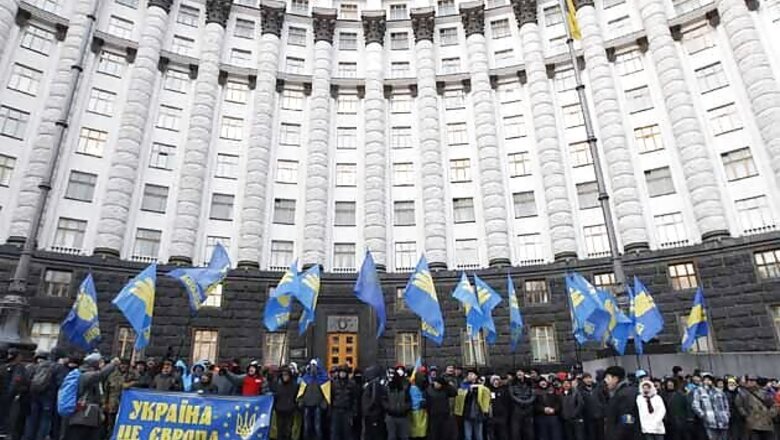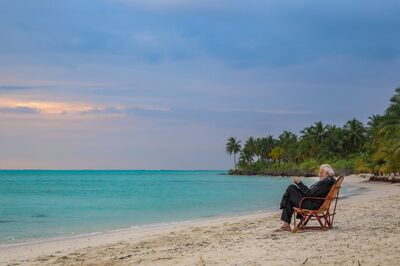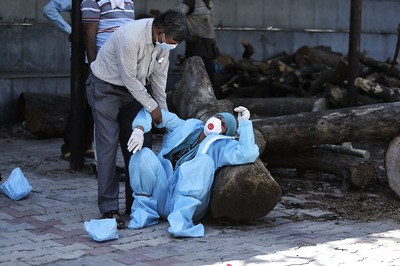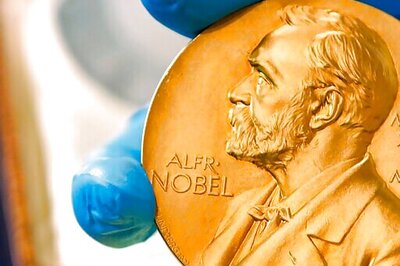
views
Ukraine's government faced a tightening blockade of key buildings by protesters in the capital Kiev on Wednesday amid a crisis over its rejection of closer ties with the European Union that has piled pressure on the creaking economy.
Protesters threatened to extend their blockade to the office of President Viktor Yanukovich, who flew to China on Tuesday leaving behind a country in turmoil over his government's decision last month to spurn a landmark EU trade accord.
The crisis has exposed once more the East-West tug-of-war playing out in Ukraine, which has oscillated between the EU and former Soviet master Moscow since the 2004-5 Orange Revolution overthrew the post-Soviet political order.
Yanukovich's Prime Minister, Mykola Azarov, said his cabinet would hold its weekly meeting on Wednesday in the government building, paving the way for a possible showdown with the protesters, who have blocked the entrances since Monday.
Azarov's government survived an opposition bid to topple it in parliament on Tuesday, but won little relief.
International markets kept up the pressure, driving the cost of insuring Ukrainian debt against default to a level not seen since January 2010. Ukraine faces gas bills and debt repayments next year of more than $17 billion.
Azarov, striking a conciliatory tone, apologized for the police's use of force against protesters at the weekend and implored opposition leaders not to try a repeat of 2004-5, when mass protests overturned a fraudulent election won by Yanukovich.
Addressing parliament in Russian, Azarov faced a barrage of catcalls from opposition lawmakers who draw their support from the country's Ukrainian-speaking West.
FOOD, CLOTHING HANDOUTS
The United States weighed into the crisis on Tuesday.
"We urge the Ukrainian government to listen to the voices of its people who want to live in freedom and in opportunity and prosperity," Secretary of State John Kerry said in Brussels.
"We urge all sides to conduct themselves peacefully. Violence has no place in a modern European state."
Some 350,000 Ukrainians massed in Kiev on Sunday in protest at the government's decision, under Russian pressure, to spurn the pact on closer trade relations with the EU, dismayed at what many of them saw as a defining rejection of Western integration in favor of deeper ties with Moscow.
Thousands are manning barricades made of plywood, park benches and the branches of an artificial Christmas tree around Kiev's Independence Square, epicenter of the Orange Revolution.
At Kiev's city hall, now an organizational hub for protesters who have occupied the building since Sunday, people dozed on the second floor while others passed through the revolving doors for handouts of food and warm clothing, as the harsh Ukrainian winter just begins to bite.
Yanukovich, a rough-hewn former electrician from Ukraine's Russian-speaking East, is due to stay in China until December 6, seeking loans and investment to head off a debt crisis.
His departure was a gesture of confidence that order could be maintained at home.
The opposition is a loose alliance of political factions ranging from pro-EU liberals to hardline nationalists, without a galvanizing figure in the mould of Yulia Tymoshenko, who co-led the Orange Revolution but was jailed for abuse of power after Yanukovich became president.
Some analysts see Vitaly Klitschko, a heavyweight boxing world champion and now leader of the opposition Udar (Punch) party, emerging from the pack, though he is largely untested.
"The Orange Revolution laid the foundation for this," said self-employed businessman Yegor Kitov, 45.
"But this movement is stronger because, while then it was political parties that were organizing the people, now we are organizing ourselves."




















Comments
0 comment